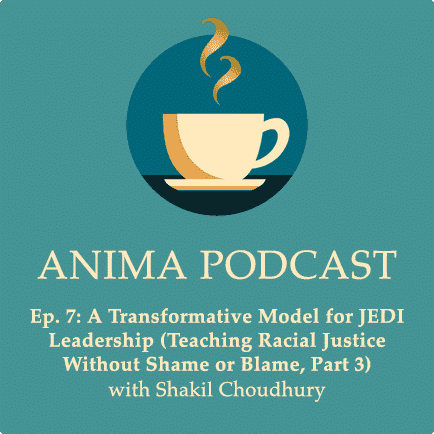In this Anima Café, our co-founder Shakil Choudhury will present a new tool to identify the stages of JEDI transformation that leaders and organizations are at: The Anima Transformative JEDI Model. Exploring 3 different stages on the JEDI journey, this instrument helps identify strengths, weaknesses, and pathways to change.
We’re witnessing unprecedented openness and vulnerability from leaders over the last year in addressing anti-Black racism and overall equity in their organizations. Despite this, the struggle persists to create long-lasting systems change. Leaders are still misfiring on who they hire, advance, and retain because of limitations in JEDI (Justice, Equity, Diversity, and Inclusion) knowledge and skills. Black, Indigenous, and people of colour are still disproportionately approached to “fix” diversity problems in organizations. Those who call attention to systemic instances of racism and discrimination get unfairly stereotyped as “troublemakers” or “difficult” colleagues. Burnout, increased levels of stress, retaliation, and constructive dismissal are the stories that equity advocates tell when they recount the toll of pushing for organizational transformation. And occasionally, in progressive organizations, JEDI goals can sometimes be hijacked by a small subset of activists who themselves may be deregulated or wounded.

In this Anima Café, our co-founder Shakil Choudhury will present a new tool to identify the stages of JEDI transformation that leaders and organizations are at: The Anima Transformative JEDI Model. Exploring 3 different stages on the JEDI journey, this instrument helps identify strengths, weaknesses, and pathways to change. This is the last of three sessions on effective strategies to teach justice and equity issues without shame and blame.

